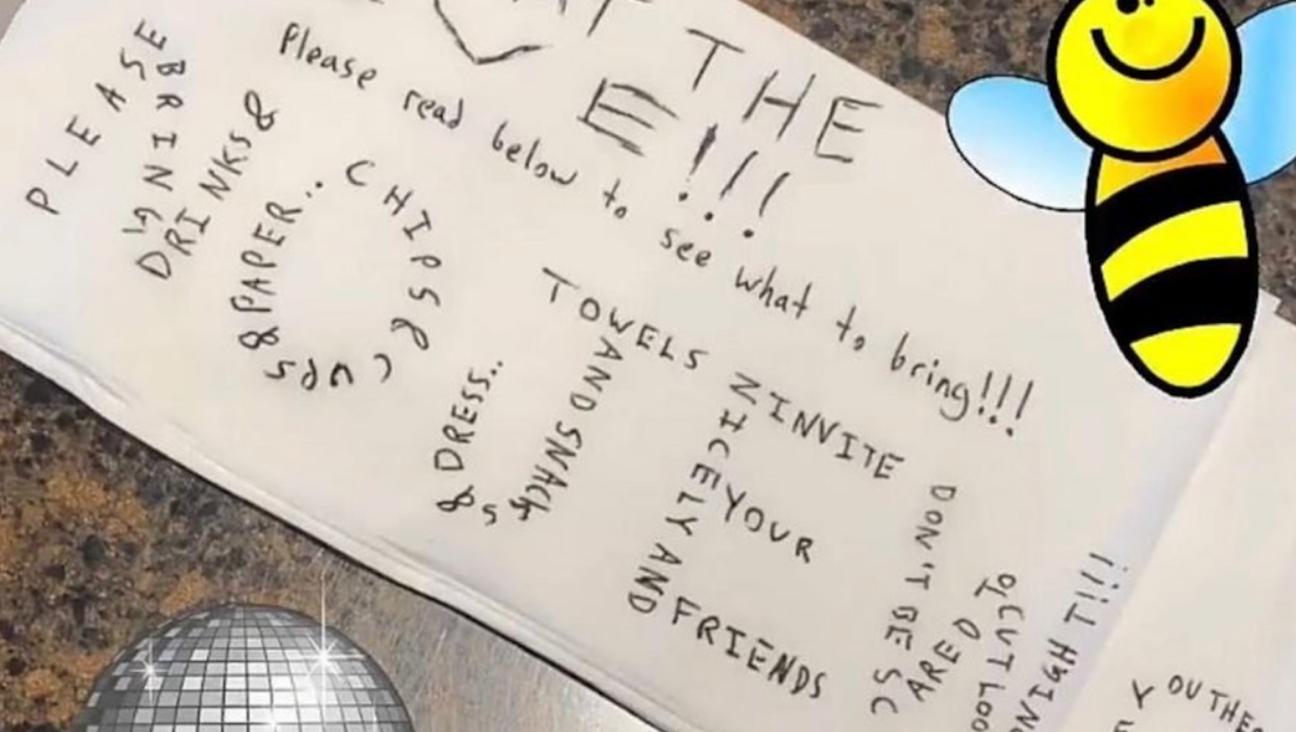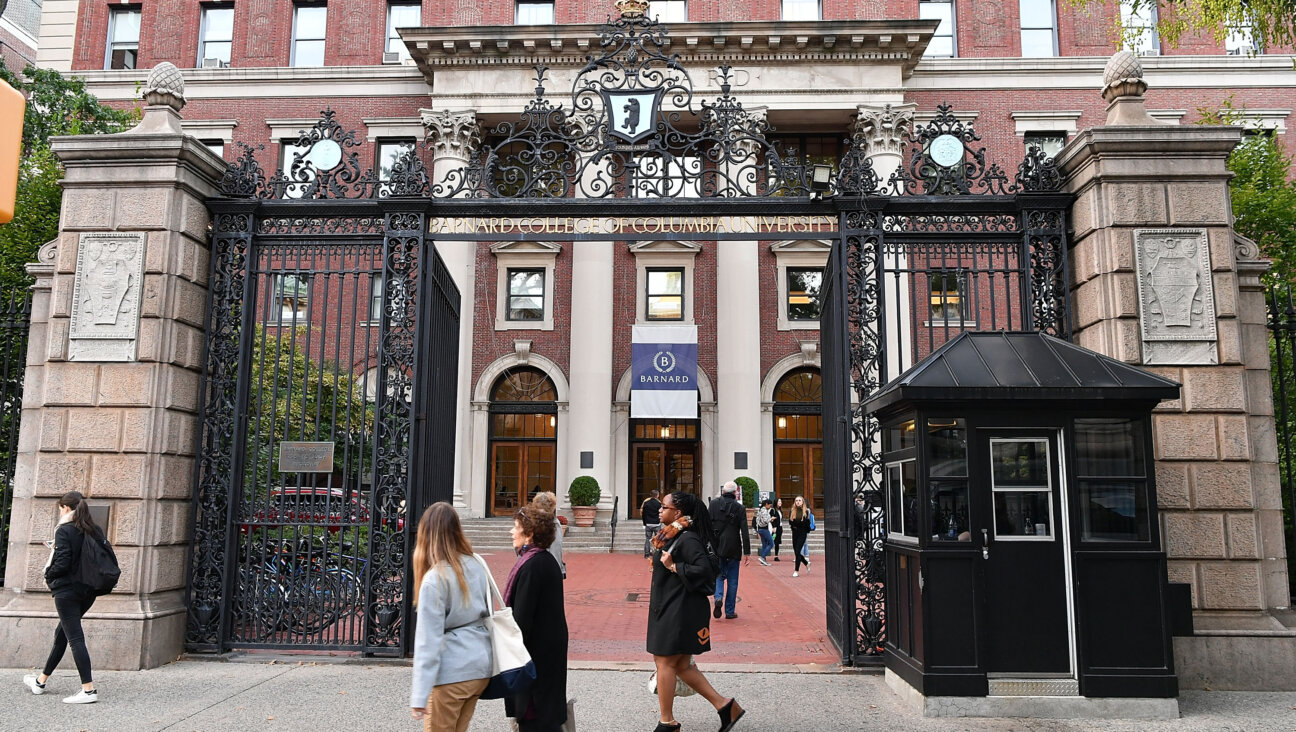A Melody of Jewish Meditation
When I asked composer Daniel David Feinsmith what his former life as a Zen monk had entailed, he had a ready answer. “Well,” he told me by phone from San Francisco, “it involved celibacy. It involved meditation — hours facing a blank wall. And it involved frugality.”
Normally, the word “celibacy” would be the showstopper in just about any interview. With Feinsmith, it’s a throwaway, maybe even a red herring — a bit of trivia you trip over on the way to something more interesting. It’s hardly the most unusual thing about the guy.
Feinsmith’s 10-year stint as a monk in New Orleans also marked a one-year hiatus from music. Born and raised in the Flushing section of Queens, his original intent was to become a pianist, but a chance encounter with a monk and a gong at a New Orleans zendo shunted him onto a very different track. (Feinsmith had wandered into the middle of a prayer service, and when the monk struck the gong, he was sold.)
When he eventually decided to leave the monastery and return to music, Feinsmith took his Zen mindset with him. To this day, he retains “a strong desire to destroy the sense of self, to overcome it — to rid myself of that. I don’t want my music to be an expression of me at all, because I’m pretty boring, really. I’m a guy who sits in a room and clicks on a mouse all day long.” That’s not the kind of thing you expect to hear from a composer, especially when most people consider self-expression to be the principal aim of any art form.
For Feinsmith, composition is a form of spiritual practice with another, more exalted purpose — one that was revealed to him by his teacher, Terry Riley, one of the founders of Minimalism. Feinsmith studied both Western composition and North Indian vocal music with Riley, and he acquired the Hindustani concept of music as a motive force in the universe — “Every piece of matter is vibration,” he said — along with Riley’s own view that composers have the power to do both harm and good with the music they write. The job of the composer is, therefore, “to figure out how to do things musically — to use music as a kind of magic tool” to affect the world around us. Not surprisingly, this former monk would ideally like to impart a greater awareness of truth, purity and beauty to his listeners.
In recent years, Feinsmith has become fascinated by Jewish mysticism. He’s quick to point out that he does not practice what one would call mainstream Judaism. It’s more of a Judeo-Buddhist hybrid, or what he calls “meditative Judaism.” But it has had a direct impact on every aspect of his work, from the biblical names he applies to his compositions (“Solomon,” “Leviathan,” “El Elyon”) to the specific techniques he uses in writing them.
Inspired by the Sefer Yetzirah, a seminal kabbalist text that ascribes the creation of the universe to God’s manipulation of the 22 letters of the Hebrew alphabet, Feinsmith bases each composition on a series of numbers derived from either its Hebrew name, the names of God or selected biblical passages. (This numerological technique, known as gematria, is commonly used in talmudic commentary to find hidden meanings in texts.) He then feeds those numbers into the kinds of compositional algorithms commonly used by modern composers to generate the raw materials for their pieces: melodies, harmonies and rhythms.
“Yahweh,” for example — a five-movement work for string quartet and handbell choir — was generated using the numbers 10, 5, 6, 5, which correspond to the numerological values of the letters in the Tetragrammaton. “All the harmonies and rhythmic possibilities are based on algorithms that use 10, 5, 6, 5 as inputs,” Feinsmith explained.
Feinsmith’s method might seem mechanical, yet his music is anything but. “Yahweh,” which Feinsmith recently renamed “Hashem,” features some inspired writing for handbells and pizzicato strings that occasionally evokes the sound of a Balinese gamelan. And it demonstrates the same fascination with repetition, counterpoint and timbral contrast that appears in works like “Leviathan” and “El Elyon,” both for solo piano, or “Elokim,” the latest suite of pieces written expressly for his Feinsmith Quartet, which made a rare appearance in New York in January. (Despite the name, Feinsmith himself doesn’t play in the group.)
Given his desire to remove himself from his work, it’s ironic that Feinsmith should have such a remarkably consistent and identifiable voice; you would never mistake his work for anyone else’s, and his signature sound emerges, regardless of instrumentation or form. So, too, does something that is harder to define: an overwhelming emotional intensity that belies the calculating quality of his compositional process.
In fact, Feinsmith has made a study of the ways in which music can draw people into a deep, trancelike state, and his use of repetition and contrast is intended to do just that. It seems to be working; after attending a performance of his music last year, two retirees in his community offered to support him financially. As a result, he has been freed from the tyranny of commissions, grant-writing and teaching under which most composers labor.
And there you have it: A kabbalist and recovering Zen monk forges a unique musical style grounded in a personal fusion of Eastern philosophy and Jewish mysticism, and goes on to enjoy a form of patronage not seen since the time of Beethoven.
So what was that about celibacy again?
Alexander Gelfand is a writer living in New York City.
The Forward is free to read, but it isn’t free to produce

I hope you appreciated this article. Before you go, I’d like to ask you to please support the Forward.
Now more than ever, American Jews need independent news they can trust, with reporting driven by truth, not ideology. We serve you, not any ideological agenda.
At a time when other newsrooms are closing or cutting back, the Forward has removed its paywall and invested additional resources to report on the ground from Israel and around the U.S. on the impact of the war, rising antisemitism and polarized discourse.
This is a great time to support independent Jewish journalism you rely on. Make a gift today!
— Rachel Fishman Feddersen, Publisher and CEO
Support our mission to tell the Jewish story fully and fairly.
Most Popular
- 1

Culture Trump wants to honor Hannah Arendt in a ‘Garden of American Heroes.’ Is this a joke?
- 2

Fast Forward The invitation said, ‘No Jews.’ The response from campus officials, at least, was real.
- 3

Opinion A Holocaust perpetrator was just celebrated on US soil. I think I know why no one objected.
- 4

Fast Forward Columbia staff receive texts asking if they’re Jewish, as government hunts antisemitic harassment on campus
In Case You Missed It
-

Opinion RFK Jr. and Trump are talking about an ‘autism registry’ — this sounds disturbingly familiar
-

Fast Forward Heavy police presence blocks anti-Israel protest in Brooklyn from reaching Jewish neighborhood
-

Yiddish קאָקני־ייִדיש“: אַ פּאָדקאַסט, אַ לשון און אַ שטײגער לעבן‘Cockney Yiddish’: A podcast, a language and a way of life
צװײ לאָנדאָנער היסטאָריקערינס לעבן אױף דאָס ייִדישע „איסט ענד“ אין אונדזער פֿאַנטאַזיע
-

Special Report Trump and Jews: The first 100 days
-
Shop the Forward Store
100% of profits support our journalism
Republish This Story
Please read before republishing
We’re happy to make this story available to republish for free, unless it originated with JTA, Haaretz or another publication (as indicated on the article) and as long as you follow our guidelines.
You must comply with the following:
- Credit the Forward
- Retain our pixel
- Preserve our canonical link in Google search
- Add a noindex tag in Google search
See our full guidelines for more information, and this guide for detail about canonical URLs.
To republish, copy the HTML by clicking on the yellow button to the right; it includes our tracking pixel, all paragraph styles and hyperlinks, the author byline and credit to the Forward. It does not include images; to avoid copyright violations, you must add them manually, following our guidelines. Please email us at [email protected], subject line “republish,” with any questions or to let us know what stories you’re picking up.














